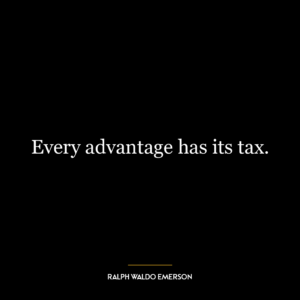This quote implies that when you genuinely love and serve others, rewards will inevitably come your way. These rewards may not always be material or financial; they could be emotional or spiritual. Essentially,it means that good deeds do not go unnoticed and often have a way of returning to the giver in one form or another.
the term “remuneration” typically refers to monetary payment for services rendered. However, in this context, Emerson uses it to represent any form of reward or return on investment – not just money but also respect, love, happiness, fulfillment etc.
Emerson’s quote suggests an inherent law of reciprocity in human interactions and relationships. It is indeed almost like a global law: if you give out positivity (i.e., through acts of love and service), positivity will come back to you.
Applying this idea in today’s world can have profound implications on personal development as well as societal progress at large. for instance, if individuals focus more on serving others selflessly – whether it’s helping a neighbor with groceries or volunteering at local charities – they are likely to experience personal growth and satisfaction.Moreover, businesses can apply this principle by investing more in corporate social responsibility initiatives. By serving communities where they operate (through employment creation or community development projects), businesses are likely to earn goodwill which can translate into customer loyalty thus boosting their bottom line.
On a broader scale – say national policy – governments that invest heavily in public goods/services (education/healthcare) are likely to enjoy higher levels of citizen contentment leading possibly even to political stability.
In conclusion: Emerson’s quote underscores the importance of selfless service towards others as a pathway not just for personal growth but also for societal progress overall.















